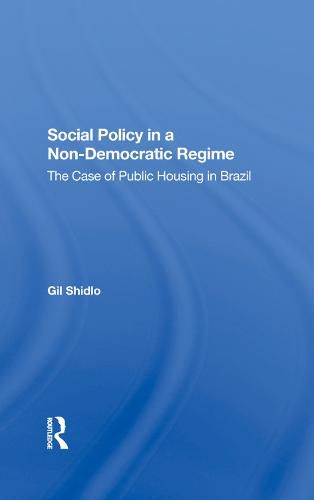Readings Newsletter
Become a Readings Member to make your shopping experience even easier.
Sign in or sign up for free!
You’re not far away from qualifying for FREE standard shipping within Australia
You’ve qualified for FREE standard shipping within Australia
The cart is loading…






This book had its origins in my doctoral research at the London School of Economics. It developed more rapidly than expected thanks to the good will and collective efforts of various people and institutions who provided help and support-material, intellectual and moralthroughout four years at the LSE and two years at Tel Aviv University. I am most grateful to George Philip and Patrick Dunleavy, who have patiently read the many drafts and offered their comments and suggestions at various stages of this work. I would also like to thank Peter Dawson, who during my early days at the LSE as a research and MSc student, supervised, advised and above all encouraged my intentions to carry out research on developing countries. Henrique Rattner of the Fundacao Getulio Vargas provided me not only with technical support but also introduced me to the complex Brazilian bureaucracy. Gabriel Bolaffi, of the Faculty of Architecture and Urbanism at the University of Sao Paulo, made it possible for me to gain access to the otherwise restricted public housing agencies. I also extend my gratitude to the officials at COHAB/SP, CODESPAULO, INOCOOP and the BNH (in Rio de Janeiro and Sao Paulo) who spared precious time to be interviewed and supplied me with published and unpublished documents. The IPT (Sao Paulo Institute of Technological Research) provided the primary material on ltaquera and enabled me to use their computing facilities and process the data. Special thanks are due to Ros Mari Kaupatez. The friends we made in Sao Paulo, whose welcome and warmth surpassed all expectations, made a long stay more bearable. This project could not have been carried out without the moral and financial support of both my grandfather and my parents, who took a deep interest in my studies and encouraged me during difficult periods. A debt of thanks is also owed to the Publication Committee of the London School of Economics, especially P. C. Davis. Anthony Hall’s comments were very valuable. Thanks are due to the Faculty of Social Sciences and the Department of Political Science at Tel Aviv University for financial help in preparing this work for publication. Finally, this study is dedicated to my wife, Sarah, who interrupted her studies to accompany me to Brazil and helped me in ways I cannot adequately acknowledge.
$9.00 standard shipping within Australia
FREE standard shipping within Australia for orders over $100.00
Express & International shipping calculated at checkout
This book had its origins in my doctoral research at the London School of Economics. It developed more rapidly than expected thanks to the good will and collective efforts of various people and institutions who provided help and support-material, intellectual and moralthroughout four years at the LSE and two years at Tel Aviv University. I am most grateful to George Philip and Patrick Dunleavy, who have patiently read the many drafts and offered their comments and suggestions at various stages of this work. I would also like to thank Peter Dawson, who during my early days at the LSE as a research and MSc student, supervised, advised and above all encouraged my intentions to carry out research on developing countries. Henrique Rattner of the Fundacao Getulio Vargas provided me not only with technical support but also introduced me to the complex Brazilian bureaucracy. Gabriel Bolaffi, of the Faculty of Architecture and Urbanism at the University of Sao Paulo, made it possible for me to gain access to the otherwise restricted public housing agencies. I also extend my gratitude to the officials at COHAB/SP, CODESPAULO, INOCOOP and the BNH (in Rio de Janeiro and Sao Paulo) who spared precious time to be interviewed and supplied me with published and unpublished documents. The IPT (Sao Paulo Institute of Technological Research) provided the primary material on ltaquera and enabled me to use their computing facilities and process the data. Special thanks are due to Ros Mari Kaupatez. The friends we made in Sao Paulo, whose welcome and warmth surpassed all expectations, made a long stay more bearable. This project could not have been carried out without the moral and financial support of both my grandfather and my parents, who took a deep interest in my studies and encouraged me during difficult periods. A debt of thanks is also owed to the Publication Committee of the London School of Economics, especially P. C. Davis. Anthony Hall’s comments were very valuable. Thanks are due to the Faculty of Social Sciences and the Department of Political Science at Tel Aviv University for financial help in preparing this work for publication. Finally, this study is dedicated to my wife, Sarah, who interrupted her studies to accompany me to Brazil and helped me in ways I cannot adequately acknowledge.